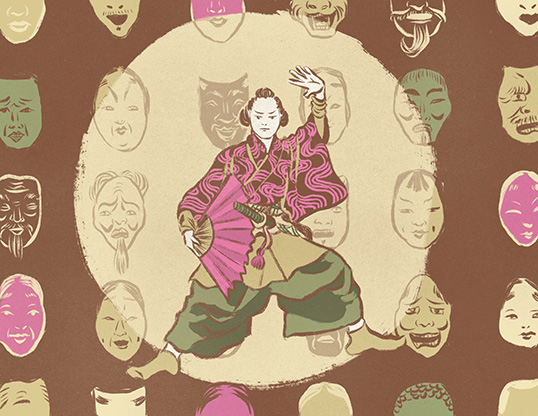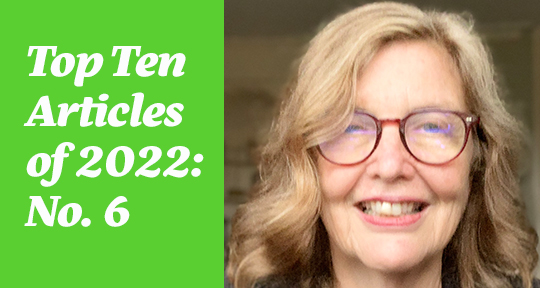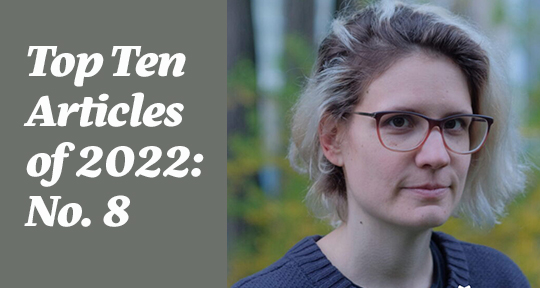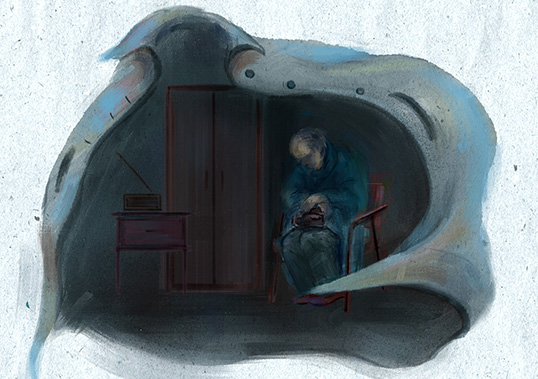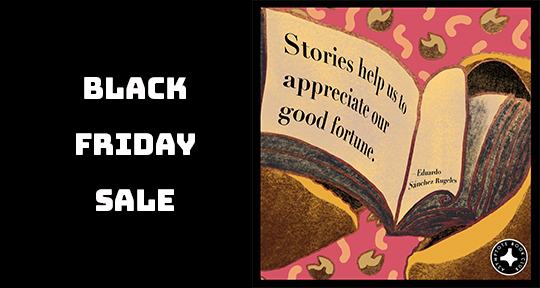Is Edogawa Ranpo Japan’s Edgar Allan Poe or is Edgar Allan Poe America’s Edogawa Ranpo? Securing the fifth spot in our countdown of ten most-read articles in Asymptote’s pages from 2022, “The Hundred-Faced Actor” makes good on the reputation of Edogawa Ranpo–as a masterful spinner of horror stories and the father of Japanese mystery.
If you haven’t yet read “The Hundred-Faced Actor,” translated brilliantly into the English for the first time by Lin King for our Spring 2022 issue, we invite you to step into another person’s skin in this psychological thriller, which José Garcia Escobar, Editor-at-Large for Central America, praised as “bizarre, unique, and fascinating.” Told by an older narrator to a younger audience, this discomforting tale takes us on an excursion to a banned theater featuring the titular actor of hundred likenesses—and the revelation thereafter that emerges amidst old newspapers that is tied to a slate of grave robberies. We can’t bear to give away the twists and turns, but suffice it to say that Ranpo leaves his reader intrigued and a bit queasy. Helping to peel back the layers of mystery is translator Lin King, who shared in her translator’s note: “ The ease with which Ranpo’s work can be translated across both languages and time is, I believe, a testament to the timelessness of his themes: people’s capacity for harming each other, as well as our tendency to dismiss said harm as “impossible” and “faked” when we witness it. In this sense, Ranpo’s work is perhaps more relevant today than ever.”
Here is an excerpt of the fiction:
I’d told R ahead of time that I preferred to watch from the back of the room, but for some reason he sat down in the very front row instead. When the actors came close to the edge of the stage, their faces were only about one ken apart from ours, and we could see every minute detail. But even as close as we were, we still couldn’t make out the smallest flaw in the Hundred-Faced Actor’s disguises. If he was playing a woman, he was a woman; if he was playing an old man, he was an old man—the transformation was absolute. For instance, the wrinkles: an average actor would use makeup to draw on the wrinkles; if you were to look from the side, you’d see through the illusion straight away. The sight of black ink smeared haphazardly on soft, plump cheeks is enough to make anyone chuckle. But the Hundred-Faced Actor—how did he do it?—had actual wrinkles etched into his flesh. And that wasn’t all. Every time he changed disguise, the shape of his face would also change completely. “Miraculous” didn’t cut it: depending on the situation, his face would become round or long, his eyes and mouth would grow big or small, and the very shape of his nose and ears would change dramatically. Was I hallucinating? Was there some sort of secret technique that made something like this possible? To this day, my questions remain unanswered.
In all its shapes, and across myriad cultures, literature extends our notions of what’s possible and helps us conceive a better world—in short, it is a benevolent force of good in this age of divisiveness. If you are feeling generous this gift-giving season, why not support our mission to seek out and publish the very best in world literature? It only takes three minutes to sign up to become a sustaining member or masthead member from as little as USD5 a month!


